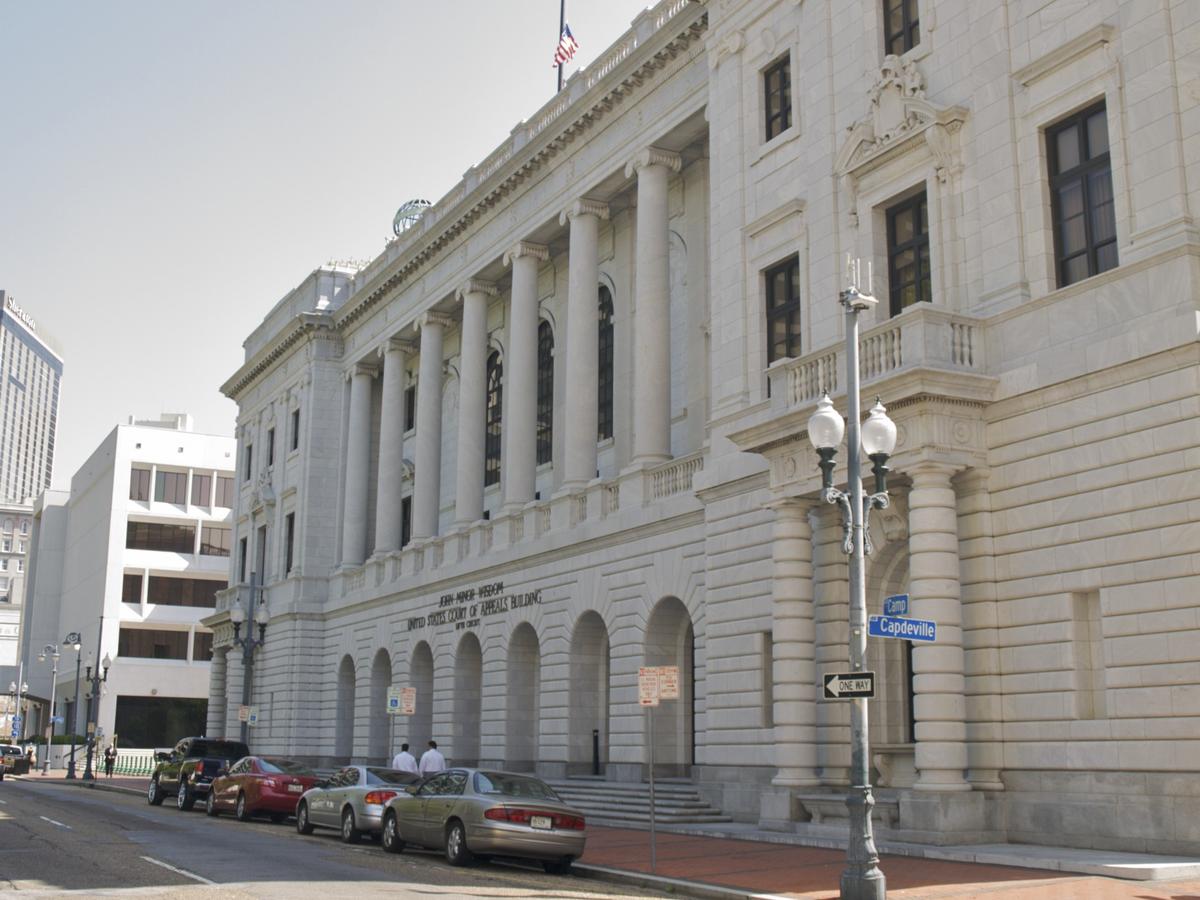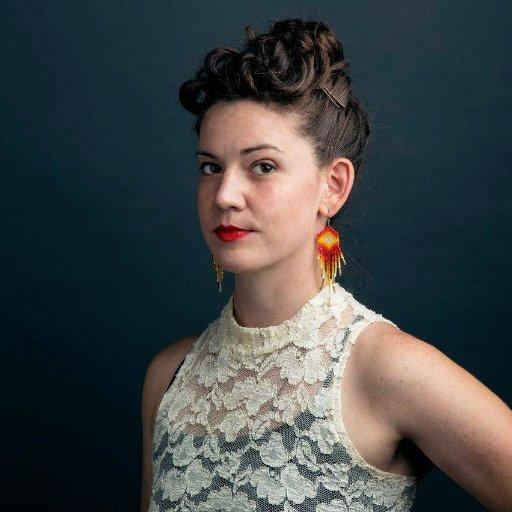 |
| Sixteen judges on the United States Fifth Circuit Court of Appeals delivered a split decision in a lawsuit challenging the constitutionality of the Indian Child Welfare Act of 1978. The lawsuit charges that the law is racially based and unconstitutional because it is biased against non-Native families seeking to adopt. The 8-8 split decision largely means that portions of the ruling would apply only to cases in the Fifth Circuit district, which includes Texas, Mississippi and Louisiana, and would not directly affect ICWA cases in Alaska. (Creative Commons photo by David Schexnaydre/via Flickr) |
The award-winning podcast “This Land” returns for a second season. This one examines the legal attacks on a 40-plus-year old federal law meant to protect Native children in the U.S.
The first season of “This Land” examined two legal cases that became incredibly important to criminal jurisdiction and recognizing Tribal land. Cherokee journalist Rebecca Nagle is the host. LINK
“The podcast is about cases that are important to federal Indian law and Indigenous sovereignty that I felt like needed to be covered more.”
Two cases pitted state jurisdiction over Tribal jurisdiction in Oklahoma, where the Creek people were forced to relocate from the Southeast during the Trails of Tears in the 1800s. They signed another treaty with the federal government in 1856.
Oklahoma never really recognized the Mvskoke (Muscogee) Nation reservation.
“Oklahoma's main argument was, ‘we haven't recognized these reservations in over a century. And so you can't possibly ask us to recognize them.’ Now, there was no real legal argument behind that. It was just this kind of thing of, well, eastern Oklahoma can't possibly be a reservation.”
Eventually, those cases went to the U.S. Supreme Court, and the decisions re-affirmed the Mvskoke still had a reservation in eastern Oklahoma -- and in turn, jurisdiction over its lands and Tribal sovereignty. It also reaffirmed the Tribal land of four other Tribes in the area: The Cherokee, the Choctaw, the Chickasaw and the Seminoles.
But it’s still a huge legal mess. Oklahoma continues to challenge the Supreme Court decision.
Nagle pivoted from that story to another legal battle that’s been brewing over the Indian Child Welfare Act, or ICWA. That’s a federal law passed in 1978 intended to prevent the removal of Native children from their families and communities.
Before ICWA, the federal government was adopting Native children out of their communities to white families.
“The federal government under the BIA (Bureau of Indian Affairs) had this program called the Indian Adoption Project, where it was literally trying to take Native kids and put them up for adoption, for them to be adopted by white families,” Nagle said. “There was just deep racial bias within (the) child welfare system. So social workers were seeing Native kids being raised by an aunt or being raised by a grandma. But because they weren't being raised by the biological parent, that was child abandonment.”
The Association on American Indian Affairs published a report that said between 1941 and 1967 as many as one-third of Native children were separated from their families.
“And so it was a crisis -- about a third of Native kids were gone,” Nagle said. “You talk to Elders and people from that time and they'll talk about how there were communities, Native communities, where there just weren't kids.”
The Indian Child Welfare Act was passed in 1978.
“It was really created under this time where white homes were seen as being inherently better than Native homes. And it's this remedial measure to stop that racism in the system.”
ICWA requires that when child welfare workers consider the adoption of Native children -- they must first consider the family, the Tribe or Tribes, or at the very least another Native home.
A years-long challenge to ICWA began brewing when a Texas couple, the Brackeens, fostering a Native toddler, were told they couldn’t adopt the child.
“The child welfare department there in Texas and also the child welfare departments of Cherokee Nation, Navajo Nation, were looking for a permanent home for the child,” Nagle said. “Navajo Nation found a Navajo home, and because of ICWA, that's where the child was going to go. But then the Brackeens sued. And the way that they tell it is that ICWA was threatening to tear their family apart and that they were told they couldn't raise this child because he was Native and they were not. And so it was unfair to them and it was also unfair to the child, and that's unconstitutional.”
The Brackeens took their case to state court and then to federal court, until a split en banc decision in the 5th Circuit Court of Appeals -- ruled that in this case ICWA was constitutional in parts, but it wasn’t in others.
But that decision really only affects court cases in the 5th Circuit -- which covers the federal judicial district in Louisiana, Mississippi and Texas.
“I think that the actual story of the custody cases show why there's still a deep bias in the system against our families -- against Native families and especially Native families who are struggling with poverty or homelessness or other issues,” Nagle said. “The system really doesn't view those families, at least in these cases, as favorably as white families and as families that have more money.”
Nagle says podcast producers interviewed one grandmother, who helped raise a grandchild before she went into foster care.
The grandmother fought for three years to be considered as a placement for the grandchild -- and then she had to fight the non-Native foster family before she was finally able to adopt the grandchild.
"She had spent six years total fighting first the system and then this foster family to be able to adopt her grandchild," Nagle said. "If that bias hadn't been in the system, she wouldn't have had to go through all that, but also her grandchild wouldn't have had to go through all of that.
Nagle said a lot of work went into producing this second season of the podcast.
“I would say making podcasts is hard and I like to think that I'm learning and getting better at it,” Nagle said. “This season it was a story that we really had to uncover. And so we had to do a ton of legwork, one to just get our hands on the details of these custody cases and then two to really find out like what is going on behind this attack on ICWA.”
Nagle says that the team sent 60 Freedom of Information Act requests during the reporting process. But it has made a difference in the reporting and thoroughness -- in comparison with some mainstream media outlets like The New York Times, The Atlantic or NPR.
“I can look at those articles, especially the Atlantic article, and find factual inaccuracies and also just sort of and we also found factual inaccuracies within federal court documents and things that have been filed, a story that's been told to federal court,” Nagle said. “And so it became really, really, really important for us to get to the truth and to get to a well documented truth. And that that was a lot of legwork.”
Nagle says within the ICWA cases are broader implications -- like Tribal sovereignty and the rights of Tribes.
“We need to think about the safety and well-being of our children. We also need to think about the legal status of Tribes that this case is attacking the heart of it,” Nagle said. “If you are worried about that, if you care about Indigenous rights in this country, this is a case to be paying attention to.”
Episodes of “This Land” season 2 drop every Monday through October 4.























No comments:
Post a Comment
Please: Share your reaction, your thoughts, and your opinions. Be passionate, be unapologetic. Offensive remarks will not be published. We are getting more and more spam. Comments will be monitored.
Use the comment form at the bottom of this website which is private and sent direct to Trace.